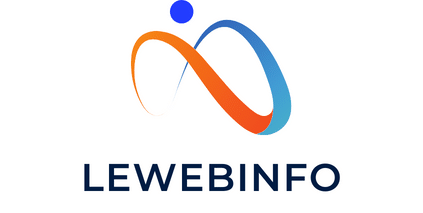How to Develop a Culturally Inclusive Marketing Campaign for a Multicultural Audience?

In a world where borders are increasingly blurred, marketing strategies must rise to the occasion. With the ever-growing diversity of consumers, your brand has to navigate the multicultural market adeptly. This requires the creation of inclusive marketing campaigns that cater to a diverse audience, celebrating their unique cultural backgrounds. Let’s delve into how we can put together such a campaign.
The Importance of Cultural Inclusivity in Marketing Campaigns
Understanding the value of cultural inclusivity in marketing campaigns forms the foundation of this guide. As the market grows more diverse, so does your potential audience. The key is to build campaigns that resonate with this diverse audience, engaging them on a personal level.
Lire également : How Can UK Tech Startups Leverage Open Source Software to Reduce Costs?
By incorporating cultural inclusivity in your campaigns, you are not just showing respect for diverse cultures but also gaining consumer insights. People love brands that recognize and appreciate their backgrounds, and this translates into brand loyalty. An inclusive marketing strategy could be the key to unlocking the potential of the multicultural market.
But how do you create a marketing campaign that respects and celebrates cultural diversity? Here are some effective strategies.
Sujet a lire : What Are the Most Effective Cross-Selling Techniques for UK Insurance Providers?
Understanding Cultural Diversity
The first step in creating an inclusive marketing campaign is understanding the cultural diversity in your target audience. This goes beyond mere demographics. Deep consumer insights come from studying the cultural nuances, values, traditions, and beliefs of different cultural groups.
Research forms the cornerstone here. Uncover as much as you can about the diverse cultures in your target market. This could involve conducting surveys, studying cultural artifacts, or even hosting focus groups. The goal is to understand the cultural context that shapes your audience’s behavior.
Remember, the more you know about your audience, the better you can tailor your campaigns to their needs and preferences.
Building a Culturally Inclusive Brand Image
Once you have gathered enough information about your audience’s cultural backgrounds, it’s time to build a culturally inclusive brand image. Your brand image should reflect your commitment to inclusivity. It should show that your brand recognizes and values cultural diversity.
The imagery, language, and content you use in your campaigns should be sensitive to cultural nuances. Avoid stereotypes and generalizations. Instead, strive for authenticity and respect. Your brand should come across as a platform that brings people of different cultures together, rather than dividing them.
This inclusive brand image will not only resonate with your diverse audience but also set you apart from competitors who do not prioritize inclusivity.
Creating Multicultural Marketing Content
Creating multicultural marketing content is the next stage in the process. The content of your marketing campaigns should speak directly to the diverse cultures in your target audience. This means creating content that is culturally relevant and respectful.
Embrace diversity in every aspect of your content. From the visuals you use to the stories you tell, everything should reflect the multicultural nature of your audience. But remember, while celebrating diversity, your content should also project a unified brand message.
The key here is to create content that is equally appealing and engaging to all cultural groups in your audience. This requires a delicate balance between cultural specificity and universal appeal.
Launching and Evaluating the Campaign
The final step is to launch your culturally inclusive campaign and evaluate its performance. Remember, the goal is not just to launch a campaign but to learn from it.
Use various metrics to evaluate the campaign’s success. This could include audience engagement, brand perception, and sales figures. Also, pay attention to the feedback from your diverse audience. Their responses will provide invaluable insights into how your campaign is being received and how it could be improved.
Building a culturally inclusive marketing campaign is not a one-time effort. It is a continuous process of learning, adapting, and evolving. As your audience grows and changes, so should your strategy. Always strive for cultural inclusivity, and your brand will thrive in the multicultural market.
In conclusion, the multicultural market is a goldmine of opportunities for brands that are willing to embrace cultural diversity. By understanding your diverse audience, building an inclusive brand image, creating multicultural content, and continuously evaluating your campaigns, you can create marketing strategies that truly resonate with a multicultural audience. It’s a process of continuous learning and adapting, but the rewards are well worth the effort. Let’s embrace diversity and build brands that bring people of all cultures together.
Implementing Social Media in Multicultural Marketing
Social media platforms present an effective and powerful tool in modern multicultural marketing strategies. They provide a direct line to your diverse audience, allowing you to engage with them in real-time.
To use social media effectively, it is vital to understand each platform’s nuances and the demographic groups that predominantly use them. For example, Instagram may be popular among younger audiences, while LinkedIn appeals more to professionals. Understanding these differences will help you tailor your message for each platform.
The use of hashtags is an effective way to engage with multicultural audiences. Hashtags related to cultural events, traditions, or celebrations can boost your visibility and reach within specific cultural groups.
When it comes to content, visual elements play an essential role on social media. Use images and videos that accurately depict the cultural diversity of your target audience. This includes using models from different ethnic backgrounds and showcasing products that appeal to various cultural groups.
Comments, likes, and shares can provide quick feedback on your social media posts. This immediate response is invaluable for evaluating your marketing campaign’s effectiveness and making adjustments as needed. Remember, the goal is to engage with your audience, not just broadcast content.
Collaborating with Experts for Successful Multicultural Campaigns
Working with experts who have a deep understanding of the multicultural market can significantly enhance your marketing efforts. These could be cultural consultants, influencers from diverse backgrounds, or marketing agencies that specialize in diversity marketing.
Cultural consultants can provide insights into specific cultural nuances that your marketing team may not be aware of. They can guide you in creating content that is culturally sensitive and relevant.
Influencers from various cultural backgrounds can also be leveraged to reach diverse audiences. They have already built a level of trust and brand loyalty with their followers. Collaborating with them can provide an authentic voice to your marketing campaigns and increase your reach within specific cultural groups.
Marketing agencies specializing in diversity marketing are equipped with both the knowledge and experience to navigate the multicultural market. They can help develop comprehensive strategies for reaching multicultural audiences effectively.
In conclusion, developing a culturally inclusive marketing campaign requires a deep understanding of your diverse audience and a commitment to celebrating their unique cultural identities. It involves continuous learning, adapting, and evolving your strategies to resonate with a multicultural market. Social media provides a powerful platform to engage with your audience directly, while experts can offer valuable insights to enhance your campaigns. With dedication and the right approach, your brand can thrive in a multicultural market and achieve lasting brand loyalty.
